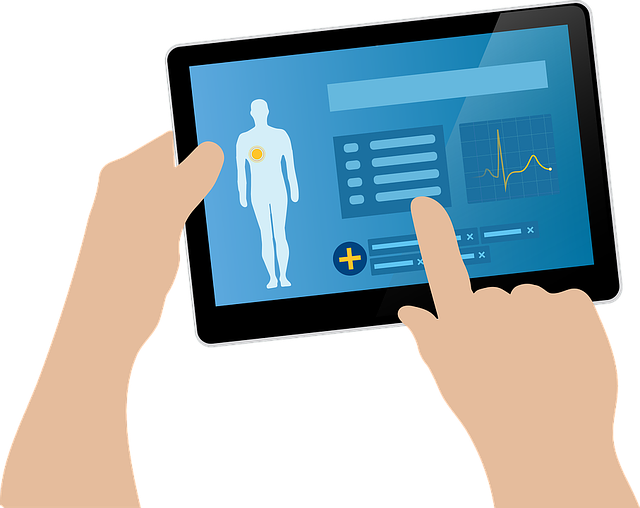With the advent of technological advancement, now more than ever, the healthcare industry is making significant progress in the quest for Electronic Health Records (EHRs).
The purpose for this innovative push is in a bid to improve the quality and safety of patient care, in addition to achieving real efficiencies in the healthcare delivery system. The question however is whether the EHR systems are helping the health care industry or merely shading its incompetency’s.
Technology is the pioneering force of further the innovative sweep that is taking over the healthcare industry. And with this sweep and the promise of a welcomed ease to healthcare professionals, a lot of emphasis has been placed on intelligent systems that support the care process and clinical decisions that surround the healthcare industry as well as the creation of health information for patient care. Nonetheless, before analyzing just what the role of EHR systems play in the bigger picture that is the healthcare industry it is worth knowing just what Electronic Health Records are.
What is Electronic Health Records?
An electronic health record (EHR) is a digital version of an individual’s medical data. It is sometimes interchangeably referred to as electronic medical records. It is collected and managed by multiple authorized healthcare providers. It consists of information gathered by medical organizations over a period of time; as such it is often referred to as a record that is taking over time rather than information from a single visit to a doctor or hospital.
Although it is managed by authorized healthcare providers, the EHRs technology also gives patients a way to access some portion of their electronic record through the PHR services also known as Personal Health Records. Viewing these PHRs often gives patients access to their records through a secure web portal. While for the authorized healthcare providers who manage the EHR, they can access patients EHRs with the help of electronic health record softwares that have been designed to ease the process.
However, even with the best electronic health records softwares, not everyone is quite satisfied with the use of the EHR systems for healthcare services that include medical claim billings. In fact, a lot of doctors have cited a couple of reasons as to why the use of EHR systems is not necessarily laudable. Below are some of the pros and cons of the EHR system according to some primary healthcare providers.
Readmore: 10 Health Benefits of Ginger You Should Know About
Electronic Health Records Pros & Cons
A lot of doctors have cited dissatisfaction with the EHR softwares on grounds of lost productivity. Top causes reported by some of these experts according to an article on healthcarebusinesstech.com were:
- EHRs require doctors to spend more time on documentation.
- Inability for doctors to see more patients in contrast to when they had not adopted electronic records.
- Poor usability and badly designed interfaces
- No access to mobile technology.
- Inefficient processes
- Inadequate training and support.
- Lack of electronic health records specialist/experts.
Nevertheless, some experts also see positives to the EHR systems and as cited in that very article are some of their positive points as regards the electronic health records programs.
- A reduction in the number of lost or missing patient charts.
- Improved regulatory compliance.
- The ability to access patient records and other documentation remotely.
- Incentive payments from federal programs for the adoption of EHR systems.
- Improved care quality.
- Higher efficiency and productivity.
- Better communication and collaboration.
- No bulky paper records to store, manage and retrieve
- Easier access to clinical data
- The ability to establish and maintain effective clinical workflows
- Fewer medical errors, improved patient safety and stronger support for clinical decision-making.
Even with the pros and cons from medical doctors and experts, it is still worth noting that the pull of technological advancement is more fancied than the complaints of some experts as regards getting a grasp with the whole concept and need for EHRs. For this reason, a lot of experts are quick to point out some of the business benefits of EHR systems in lieu of its soon-to-be ubiquitous incorporation into a lot of the healthcare facilities. These include:
- Greater staff and provider efficiency due to the ease of recording, storing, managing, and retrieving patient information
- A more efficient, cost-effective workflow, including smooth transitions from staff to provider
- Cues in the EHR software that ensure essential information is recorded and fewer mistakes are made
- Recording and tracking of quality measures, enabling improved physician productivity and success with incentive programs
- Insight into referral sources and patterns.
As an increasing number of practices struggle to maintain profitability, the benefits of electronic health records can contribute to greater efficiencies and cost savings. However, the question as to whether the introduction of the EHRs systems comes with an ulterior agenda remains to be discovered. For now, doctors, nurses and healthcare providers can only but hope the presumed bright future that the EHRs softwares are to lead to remain in sight.
dr. Puan

